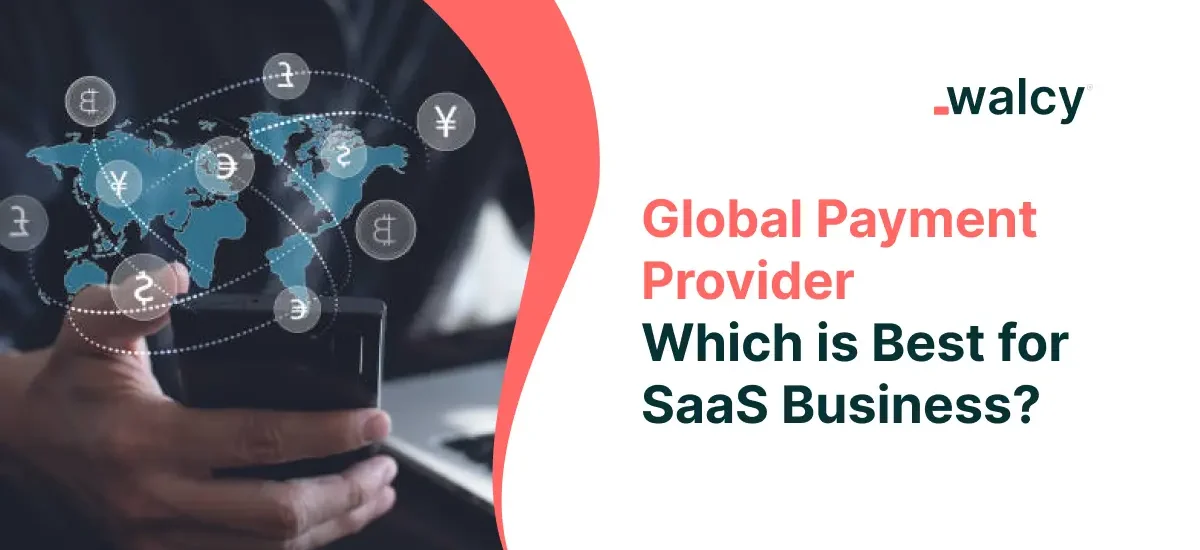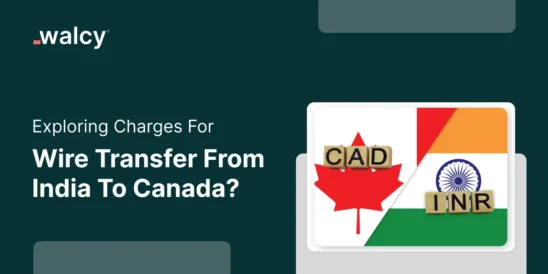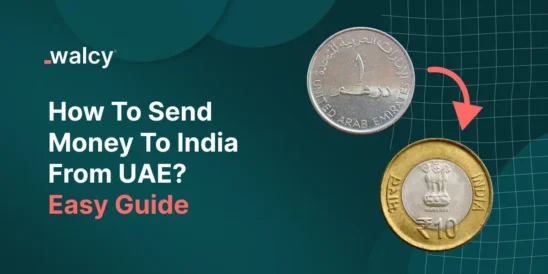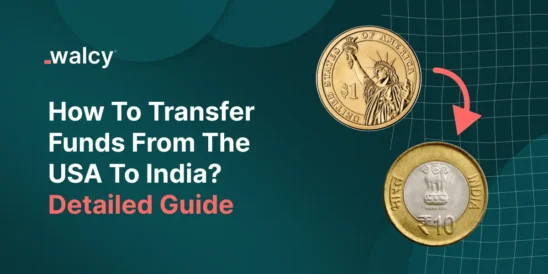In today fast growing world of Software as a Service having a reliable and efficient global payment provider is very important. It is important for the local market as well as suites if you are thinking of expanding your business internationally.
In a fast-changing SaaS world, one needs a reliable and efficient global payment provider. When your business is in the tricky balancing act of targeting local and international markets simultaneously, it shakes hands with a good payment provider to manage your transactions, customer satisfaction, and revenue. In this post, we will outline what one should look for in a global payment provider, the benefits of different payment solutions, and the top providers for a SaaS company.
What is a Global Payment Provider?
A global payment provider is a merchant offering services that help businesses accept and process payments from their customers irrespective of where they are in the world. These global payment providers thus offer a range of solutions. This includes but is not limited to payment gateways, merchant accounts, and payout platforms that enable all types of transactions.
Principal Elements of Global Payment Providers
Global Payment Gateway:
It’s the technology linking your e-commerce website or application to the network of payment processing. It transfers information about the transaction securely between the merchant and the payment processor.
Global Payment Merchant:
It’s a monetary service, which lets a company just accept credit card and debit card payments. That means acting as an intermediary between the bank and the customer on each sale.
Global Payout Platform:
A system that enables companies to make payments to suppliers, workers, or partners in any part of the globe.
Global Payment Solutions:
All-in-one services that enlace gateways, processors as well as other tools such as fraud prevention, analytics, and currency conversion.
Why SaaS Businesses Need a Global Payment Provider
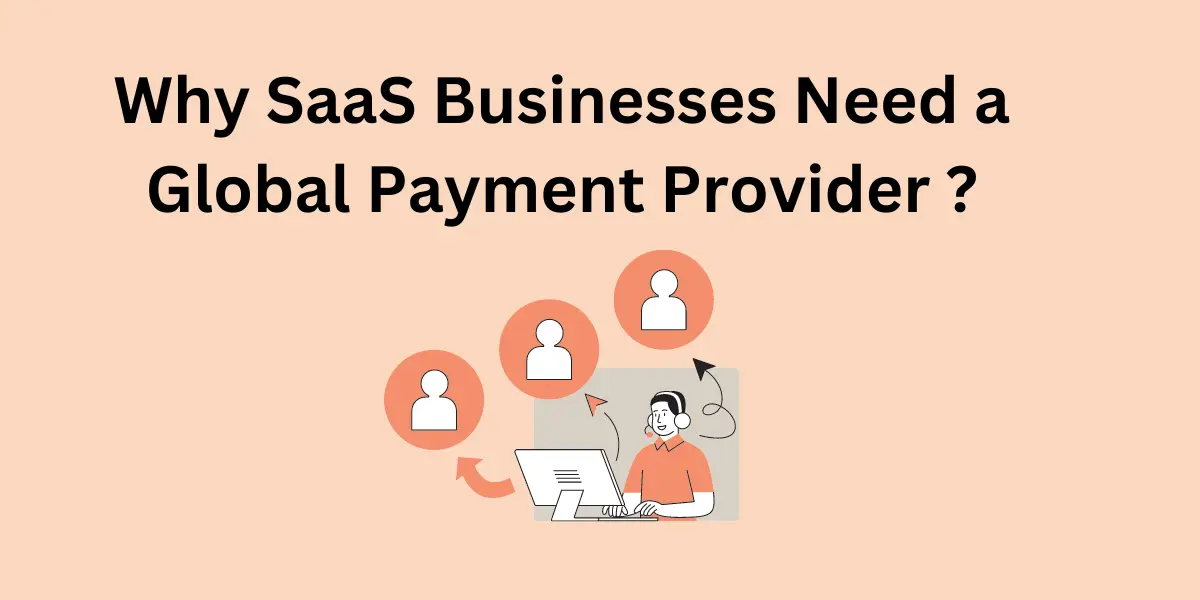
As SaaS companies have a customer base worldwide they require a payment solution that accepts diverse currencies multiple payment methods and international regulations. Here are the significant reasons a SaaS company should have a global payment provider:
Seamless International Transactions:
Accept payments in various currencies and also from different countries.
Superior Customer Experience:
Multiple options for customers to pay across the globe.
Regulatory Compliance:
Ensure conformity to world financial regulations and standards.
Scalability:
Scale up your business by handling volume increases in transactions and expanding the business to new markets and geography.
How To Select the Right Payment Provider for Your SaaS business?
While selecting the right payment provider there are certain things to consider, such as:
Security:
It has to be PCI DSS compliant; proper fraud prevention tools to safeguard your transactions and customer’s data.
Global Reach:
The vendor should be charging more than one currency and various payment methods with an established presence in your target markets.
Integration:
The vendor should be easily integrated with your systems and platforms; therefore, you have to look at their specifications concerning API and developers’ tools.
Cost:
You need to assess fees for per-transaction, fees for exchange or transfer of currencies, and hidden fees notably; it should align with your budget and business model.
Customer Support:
The ability to have reliable customer support is more important when one is dealing with international payments and transactions. Demand 24/7 support availability and a dedicated account manager.
Analytics and Reporting:
You want access to astute transaction data and reports that should inform your business decisions. (Know about foreign exchange rates)
Best Global Payment Providers for SaaS Companies:
Some of the best global payment providers for SaaS businesses include:
Stripe:
Stripe is a well-known online payment processing service, known for its powerful APIs, and ease of integration. It also accepts a broad array of payment methods and currencies; thus, it’s perfect for global SaaS businesses. It supports over 135 currencies and multiple payment methods. Besides that, fraud detection tools are based on machine learning. It also has a comprehensive API for easy integration. Furthermore, it offers customizable billing solutions to manage subscriptions.
-
- Pros
- It is friendly to the developers since it has detailed documentation.
- It has high scalability for growing businesses.
- In addition, it offers good customer support.
- Pros
-
- Cons
- Slightly higher transaction fees compared to some of the competitors.
- Complex for non-technical users.
- Cons
PayPal:
PayPal is an online payment provider. This company has a wide presence across the world by providing multiple services besides payment gateways. The company also offers merchant accounts and payout solutions. It is easy to integrate with e-commerce platforms and websites and also supports more than 100 currencies. Moreover it accepts credit cards, and several local payment methods for making transactions.
-
- Advantages:
- Trusted by consumers all across the globe.
- High reach globally
- Easy setup and very user-friendly interface.
- Cons:
- Higher charges for international transactions and currency conversion
- Not so customizable compared to other providers.
- Advantages:
Adyen:
Adyen is a profound payment platform intended for global companies. It offers comprehensive payment solutions ranging from payment processing and acquisition to risk management. It also supports more than 200 ways of payment and 150 currencies. It is a single platform that manages the web mobile, and point-of-sale payments. Moreover, it offers real-time insight into commerce and analytics along with sophisticated fraud detection and prevention service.
-
- Pros:
- Seamless Integration across multiple channels.
- Transparent and competitive pricing.
- Highly customizable and flexible.
- Cons:
- The pricing structure is not so simple, and one has to make some effort to understand it.
- It is more suited for large enterprises.
- Pros:
Braintree:
Braintree (part of the PayPal family), provides a next-generation payment platform, which is all about simplicity and innovation; and supports various payment methods along with currency or born SaaS companies. Some of its key features includes, global and local payment method support, easy integration with a plethora of development platforms, subscription and recurring billing and comprehensive fraud protection.
-
- Pros:
- clear Simple Pricing
- Perfect Developer Tools and Documentation
- Strong Support for Mobile
- Cons:
- Limited feature set compared to Stripe and Adyen
- slow customer support at times
- Pros:
Authorize.Net:
Authorize.Net is a reliable veteran online payment gateway solution provider whose strong reputation is derived from its exceptional security measures. It accepts a variety of payment methods and currencies. Some of its key features includes multiple payment modes, advanced fraud detection suite, double-click or one-click purchases and easy recurring billing, robust help support and resources etc.
-
- Pros:
- Most secure and trusted by any business
- Easy setup and easy use for small to medium businesses
- Competitive pricing for businesses
- Cons:
- International processing options fewer than many other providers
- Basic reporting and analytics features
- Pros:
Conclusion
Chosing the best global payment provider, at the right time, is a very critical decision for any SaaS business since it will determine huge things about revenue, customer satisfaction, and growth potential. From Stripe and PayPal to Adyen, Braintree, Authorize.Net, and more – these providers enable a host of features that work well for different businesses.
Security, global reach, integration, cost, customer support, and analytics are interdependent aspects when selecting the provider. As is evident from this list, things indeed matter in the choice of a proper payment solution, one that will meet current needs and scale your business.
The answer to this all lies in a well-chosen global payment provider who can simplify your payments, enhance customer experience, and facilitate the expansion of your market and, hence, long-term growth prospects for your SaaS business.
Know about Global Payment Gateways.
Know about the fees associated with crossborder payments.
FAQ’s
How Important is Customer Support During the Selection of a Global Payment Provider?
It cannot be exaggerated, especially if one is dealing with international transactions and payments. You require support availability on a 24/7 basis and even a dedicated account manager to ensure all your issues are dealt with as quickly as possible.
What Role Does Security Play in Selecting the Payment Provider?
Security is critical. The vendor should be PCI DSS compliant and their fraud prevention tools should be robust. This will ensure the safety of the transactions and customer data and save your business from the loss of finances as well as the brand.
How Can I Use a Global Payment Provider for the Scalability of My Business?
A global payment provider will allow such growth in transaction volumes by enlargement in new geographic markets, which will enhance business growth without limitation in the processing of payments for it.
What Are the Charges For International Payment Gateways?
Well, they differ from provider to provider. However, transaction charges, exchange of currency, and hidden charges are usually there. Weigh the balances with your budget and business model. You want to make sure that you can afford them, and whether they will be consistent with or betray your financial objectives.
Do follow us on Facebook and Linkedin, to stay connected with us
